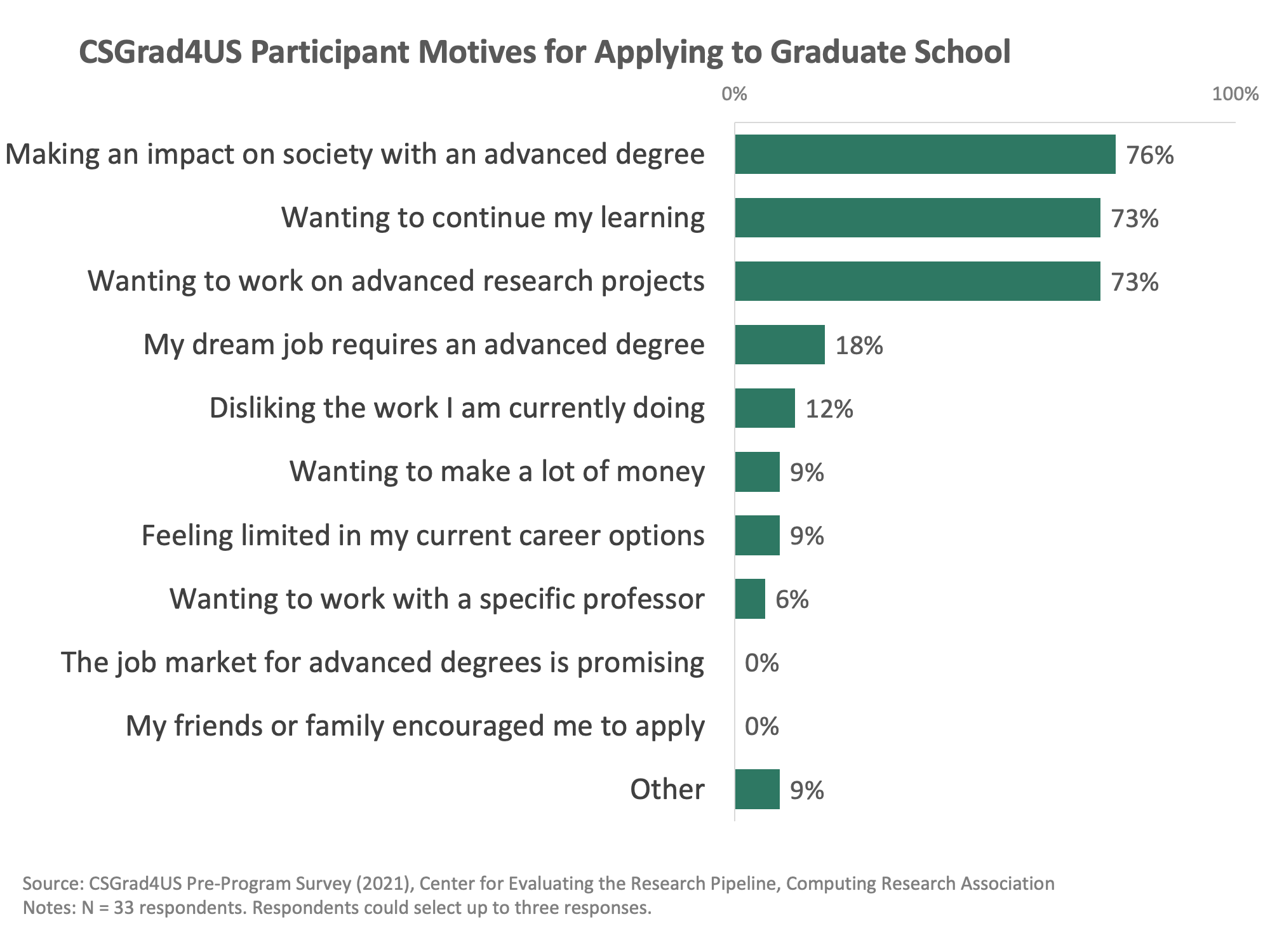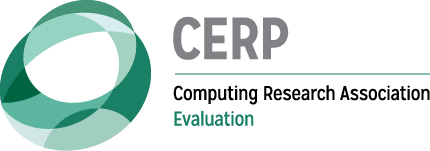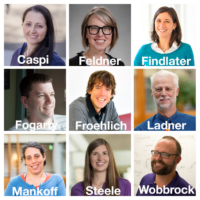First Cohort of CSGrad4US Fellowship Candidates Seek to Make an Impact on Society with an Advanced Degree

In 2021, NSF launched the Computer and Information Science and Engineering Graduate Fellowship (CSGrad4US) program for domestic bachelor’s degree holders working in industry and other sectors to support them in enrolling and completing doctoral degrees in computing. CRA-E and CRA-WP developed and delivered a mentoring program this fall for the first cohort of 34 CSGrad4US Fellowship candidates. During the twelve weeks of the CSGrad4US mentoring program, participants received information about the graduate admissions process, how to choose graduate programs, and how to prepare strong graduate application materials. Participants also worked one-on-one with program coaches during this period to address their individual needs and questions and get feedback on their graduate application materials. Among the 34 participants in the first cohort of the CSGrad4US mentoring program, 24 (71%) applied to doctoral programs for fall 2022 enrollment, and 8 (24%) will apply in fall 2022 for fall 2023 enrollment. Two participants dropped out of the program.
To identify the primary drivers of CSGrad4US participants deciding to leave their jobs to return to graduate school, a pre-program survey asked respondents to indicate up to three of their biggest motivations for their decision to apply to graduate school. Their responses are shown above. The most frequently-cited motive (cited by 76% of respondents) was to make an impact on society with an advanced degree, followed closely by wanting to continue with their learning and to work on advanced research projects. Notably, very few respondents indicated their decisions were related to their current careers; only 12% were motivated by disliking their current work, and only 9% were motivated by feeling limited in their current career options. These results suggest that targeting working professionals in computing – even those who are currently satisfied in their careers – may be a fruitful avenue for increasing enrollment in computing-related PhD programs.
For more information about the CSGrad4US Fellowship program, including eligibility and application deadlines for 2022, please refer to the NSF and CRA-WP CSGrad4US program websites.
Notes:
The survey data analyzed for this infographic were collected by Center for Evaluating the Research Pipeline.
The full CSGrad4US pre-program survey, administered prior to the start of the program mentoring and coaching components, includes a variety of questions about participants’ backgrounds, future career intentions, and computing-related attitudes and perceptions. The full question text for the data shown above is as follows: “Which of the following are your biggest motivations for deciding to apply to graduate school? (Choose up to 3 responses.)”
 This analysis is brought to you by the CRA’s Center for Evaluating the Research Pipeline (CERP). CERP provides social science research and comparative evaluation for the computing community. Subscribe to the CERP newsletter here.
This analysis is brought to you by the CRA’s Center for Evaluating the Research Pipeline (CERP). CERP provides social science research and comparative evaluation for the computing community. Subscribe to the CERP newsletter here.
This material is based upon work supported by the National Science Foundation under grant number CNS-2123180. Any opinions, findings, and conclusions or recommendations expressed in this material are those of the author(s) and do not necessarily reflect the views of the National Science Foundation.









